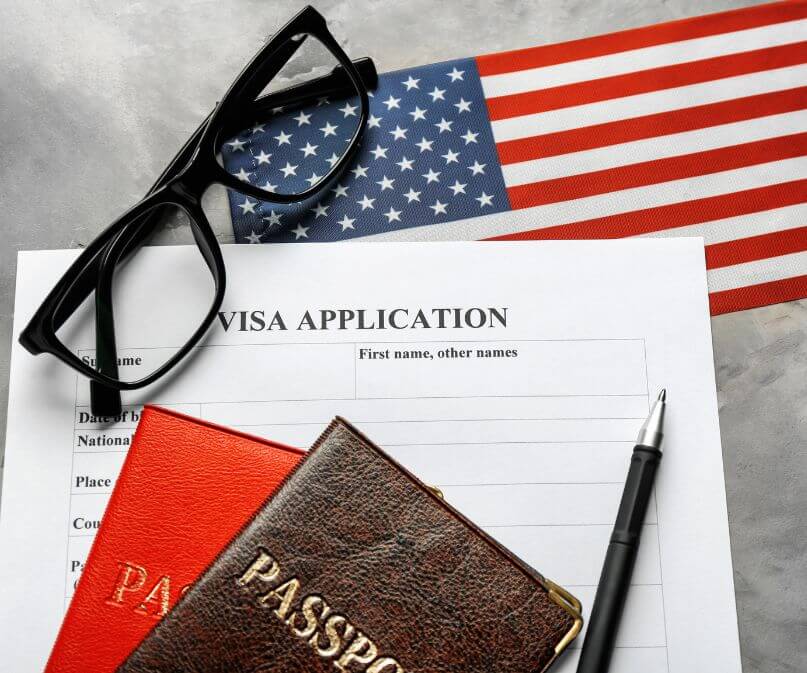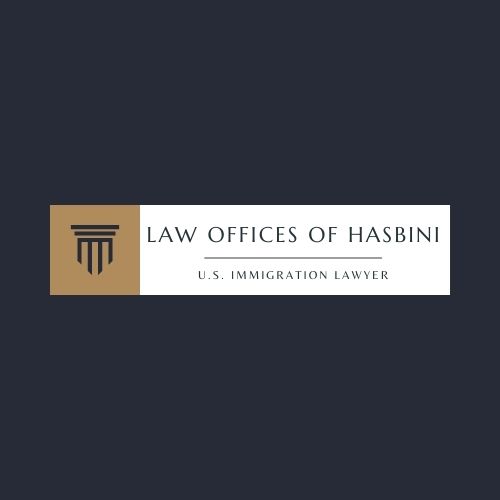
San Diego Temporary Visas Lawyer by Law Office of Hasbini
B-2 Visas
To qualify for a B-2 visa, the applicant must show the following:
- The purpose of the trip is to enter the U.S. for pleasure, or medical treatment;
- Applicant plans to remain for a specific time period;
- Applicant maintains a foreign residence that he or she has no intention of abandoning;
- Applicant is not engaged in work and will engage solely in legitimate activities relating to pleasure.
The following are considered when applying for a tourist visa:
- Adequate funds to cover the expenses for the trip including his or her stay or affidavit of support.
- Applicant has specific and realistic plans for the visit for the entire period of the contemplated visit;
- Applicant has made plans to return to his/her home country; reservation for a one-way plane ticket suffices;
- Applicant has a residence outside the U.S. as well as other binding ties, which will ensure his or her return abroad at the end of the visit.
- Normally, an applicant’s chances for getting a visa will be improved if the planned trip is short, the itinerary is clearly listed, the alien can prove that he or she has enough of funds to cover the expenses of his entire trip and has a job, family, and other ties at his or her home country.
B-1 Visas
You may be eligible for a B-1 visa if you will be participating in business activities of a commercial or professional nature in the United States, including, but not limited to:
- Consulting with business associates;
- Traveling for a scientific, educational, professional or business convention, or a conference on specific dates;
- Settling an estate;
- Negotiating a contract;
- Participating in short-term training;
- Transiting through the United States;
Eligibility Criteria
You must demonstrate the following in order to be eligible to obtain a B-1 visa:
- The purpose of your trip is to enter the United States for business of a legitimate nature;
- You plan to remain for a specific limited period of time;
- You have the funds to cover the expenses of the trip and your stay in the United States;
- You have a residence outside the United States which you have no intention of abandoning, as well as other binding ties which will ensure your return abroad at the end of the visit;
- You are otherwise admissible to the United States.
If you are in the United States in another valid nonimmigrant status, you may be eligible to change to B-1 status. You also be eligible to extend your B-1 status. To change or extend your B-1 status, you should file Form I-539, Application to Extend/Change Nonimmigrant Status.
F-1 Visas
If you would like to study as a full-time student in the United States, you will need a student visa. There are two nonimmigrant visa categories for persons wishing to study in the United States. These visas are commonly known as the F and M visas.
You may enter in the F-1 or M-1 visa category provided you meet the following criteria:
- Applicant must be enrolled in an “academic” educational program, a language-training program, or a vocational program;
- School must be approved by the Student and Exchange Visitors Program, Immigration & Customs Enforcement;
- Applicant must be enrolled as a full-time student at the institution;
- Applicant must be proficient in English or be enrolled in courses leading to English proficiency;
- Applicant must have sufficient funds available for self-support during the entire proposed course of study; and
- Applicant must maintain a residence abroad which he/she has no intention of giving up.
F-1 Student Visa
The F-1 Visa (Academic Student) allows you to enter the United States as a full-time student at an accredited college, university, seminary, conservatory, academic high school, elementary school, or other academic institution or in a language training program. You must be enrolled in a program or course of study that culminates in a degree, diploma, or certificate and your school must be authorized by the U.S. government to accept international students.
M-1 Student Visa
The M-1 visa (Vocational Student) category includes students in vocational or other nonacademic programs, other than language training.
Employment
F-1 students may not work off-campus during the first academic year but may accept on-campus employment subject to certain conditions and restrictions. There are various programs available for F-1 students to seek off-campus employment, after the first academic year. F-1 students may engage in three types of off-campus employment after they have been studying for one academic year. These three types of employment are:
- Curricular Practical Training (CPT)
- Optional Practical Training (OPT) (pre-completion or post-completion)
- Science, Technology, Engineering, and Mathematics (STEM) Optional Practical Training Extension (OPT)
- M-1 students may engage in practical training only after they have completed their studies.
For both F-1 and M-1 students, any off-campus employment must be related to their area of study and must be authorized prior to starting any work by the Designated School Official.
K-1/K-3 Non-Immigrant Visa for Fiancé/Spouse of US Citizen
United States Citizens may bring their fiancé to the United States by applying for the K-1 visa. In order to qualify for the K-1 visa, the applicant must present evidence of a bona fide relationship and that they have seen each other (in person) within two years of filing the application. Upon entering the U.S., the K-1 visa holder must get married to a United States citizen and submit a green card petition for the K-1 visa holder. Dependents of K-1 visa holders may enter with K-2 visas.
K-1 Visa for Fiancé/Fiancé
If you wish to bring your fiancée into the United States to marry, you must file with the USCIS Form I-129F, Petition for Alien fiancé for their lawful entry into the U.S.
Visa Eligibility and Requirements
You must be a U.S. citizen to file. Your fiancée or fiancé must be a citizen of another country and physically outside the U.S. at the time of application. An individual can be issued a K-1 visa only after a petition is filed in the U.S. and has been approved, based on satisfactory evidence of the following:
- That the couple previously met within the two (2) years of the date of filing the petition, unless a waiver is granted;
- That the couple has a bona fide intention to marry; and
- The couple is legally able and actually willing to conclude a valid marriage in the United States within 90 days after the fiancé’s arrival.
Marriage must take place within 90 days of your fiancée/fiancé entering the U.S. After getting married, you may file for a Green Card. Please note that it is important that you marry your fiancé within 90 days of your fiancé entering the U.S.
Extend Your Stay
If you want to extend your stay in the United States, you must file a request with U.S. Citizenship and Immigration Services (USCIS) on Form I-539, Application to Extend/Change Nonimmigrant Status before your authorized stay expires. You may apply to extend your stay if:
- You were lawfully admitted into the United States with a nonimmigrant visa;
- Your nonimmigrant visa status remains valid;
- You have not committed any crimes that make you ineligible for a visa;
- You have not violated the conditions of your admission;
- Your passport is valid and will remain valid for the duration of your stay; and
- You otherwise meet the requirements of your requested status.
You may not apply to extend your stay if you were admitted to the United States in the following categories:
- Visa Waiver Program;
- Crew member (D nonimmigrant visa);
- In transit through the United States (C nonimmigrant visa);
- In transit through the United States without a visa (TWOV);
- Fiancé of a U.S. citizen or dependent of a fiancé (K nonimmigrant visa);
- Informant (and accompanying family) on terrorism or organized crime (S nonimmigrant visa.

